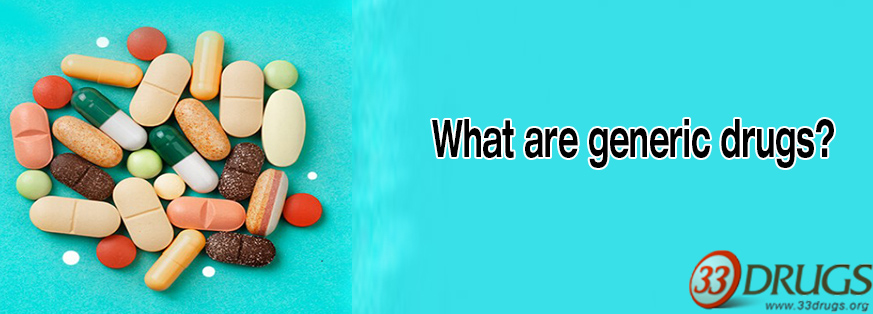What are generic drugs?
When a pharmaceutical company developed a new drug, they give it a chemical or generic name that reflects its chemical construction. The new drugs are also given a brand name (also known as proprietary name) for marketing purposes. The patents last 17-20 years (depending on when the drug was patented). During this “patent-protected” period, the company that developed the drug essentially owns all rights to that drug. Only that one company is allowed to manufacture, market, and sell the drug. After the patent expires or is invalidated, other generic drug companies can then produce the chemical drug at a much lower price because of greatly reduced research and development expense, and competition from many other generic drug companies.
Generic drugs are considered identical, or bioequivalent (i.e. when they show the same rate and extent of absorption in the human organism) to the brand-name originals. They contain the same active substances included in the same pharmaceutical form as the original product, but not possessing patent protection and have the same quality, efficacy, and safety. Generics may contain different inactive ingredients that do not have a therapeutic effect and may vary.
Are generic drugs as effective and safe as brand-name drugs?
YES! Generics are as effective and safe as brand-name drugs because the approval process for generic drugs is strict. A pharmaceutical company that manufactures a generic drug needs to prove that it is as effective and safe as its brand-name counterpart. The company must show that their generic product has the same effect on the body and manufactured to the same high standards before it can be registered and therefore sold to patients. The safety and quality of all generic products available on this site are without question. All have been through rigorous approval processes and are widely used.
Do all drugs have a generic equivalent available?
Practically yes. An exception – unique preparations for cancer and AIDS treatment where any component matters.
Why do generic drugs cost less, than brand-name drugs?
Generic medicines are usually less expensive than their brand name equivalents. This is because their manufacture demands much smaller expenses, and because they are essentially copy products, the investment in developing them is less intensive. The cost price generics lower and consequently they are on sale at a lower price and keep profitableness.
Manufacturers generic do not spend money on:
1. The research and drug development
2. The advertising and advancement preparation
3. Obtaining certificates confirming of safety and efficacy of drugs
The price of the generics is 30%-80% lower than the price of the equivalent brands.

Leave a Reply